There was no room for “bearish” sentiment in this pitchfest.
The Bears’ Den is the CHEO Research Institute’s version of similar pitch events featuring dragons and sharks. The aim is to advance healthcare innovation through partnerships with early stage companies and technologies with the potential to transform and elevate the delivery of pediatric care.
At the inaugural Bears’ Den event last month, four startups were each given 10 minutes to pitch their idea to an investor panel and answer questions.
OBJ360 (Sponsored)

Sharing “PapaJo’s” story to shine the spotlight on the Campaign to Create Tomorrow
Visitors to the seventh floor of The Ottawa Hospital’s General campus may do a double take outside Room 7123. A plaque beside the door references “PapaJo” Johns. Who, you may

Get more at home in Weavers Way, Almonte, by Minto
Weavers Way, Almonte, is Minto’s newest community, offering homebuyers a charming small-town lifestyle with big-city convenience. Stroll through historic made-for-the-movies downtown lined with boutiques and cafés, or explore scenic trails
Ottawa startup Hylid Diagnostics (HyliDx) emerged the winner, with its plans to extend the benefits diabetics have experienced through remote testing and care to patients with chronic kidney disease. Its finger-prick blood testing device aims to deliver lab-quality results that can be quickly and securely uploaded to care providers.
Hylid received a $10,000 commitment of in-kind support from the CHEO Research Institute for research and validation of the product.
“The CHEO Bears’ Den is an innovative way to bring many people from different industries motivated by the common goal of providing the best life for every child and youth,” said Alex Munter, president and CEO at CHEO. “I look forward to seeing these ideas come to life and become a staple in the future of pediatric healthcare.”
Hylid founders Jack Fairbank and Sape de Vries had previously worked on the Siemens EPOC blood testing system, a handheld solution manufactured in Ottawa that provides lab-accurate blood gas, electrolyte and metabolite results.
“We saw all the benefits of rapid blood testing to hospitals but, at the moment, there’s only rapid blood testing for glucose, really, in the home,” Fairbank said. “So diabetics are the only ones who can really understand the biochemistry of their disease at the moment.”
Fairbank said that COVID has pushed demand for remote testing and highlighted a gap in effective testing for kidney patients. A rapid test, like that designed by Hylid, could streamline treatment for home dialysis patients and help early stage patients slow the progression of the disease through real-time monitoring and lifestyle changes like exercise and diet.
“That’s where we can make the biggest gains in the long term because late-stage (chronic kidney disease) is a costly, costly thing. I think between North America and Europe, something close to half a trillion dollars is spent on chronic kidney disease,” Fairbank said. “Treating people with (chronic kidney disease) stage one, two or three is a lot less expensive than treating people with stage four or five or on dialysis.”
The Bears’ Den was hosted by the CHEO Research Institute’s new innovation team TECHi (Technology Enabling Child Health Innovations). TECHi’s purpose is to create a support ecosystem designed for healthcare innovators who want to improve the lives of children and youth through new technology products and ideas. Working in collaboration with CHEO, the CHEO Research Institute and the CHEO Foundation, TECHi partners with early stage companies and technologies that have the potential to improve the healthcare industry.
Mathew Bromwich is the innovation director for the new TECHi team. He says the delivery side of healthcare is understandably risk averse and so it can be difficult to effect change.
“On the research side, we have amazing discoveries that we pay a lot of money for, to discover and figure things out,” Bromwich said. “But the bridge between those two is sort of broken and we’re not transferring knowledge from the research ecosystem to the healthcare system effectively because of the barrier of risk aversion.”
Bromwich said building that bridge by partnering with early stage companies is exactly what his team aims to do through mentoring, incubation and partnerships with companies like Hylid. He said the CHEO Bears’ Den, which he plans to make an annual event, is a good example of the connections he hopes to foster.
“TECHi serves as the innovation and commercialization core of the CHEO Research Institute, which aims to support our researchers as they look to transform inspiration into high-impact solutions, products and services that ultimately benefit patients and families,” said Jason Berman, CEO and scientific director at the CHEO Research Institute and vice-president of research at CHEO. “The Bears’ Den pitch event is a great example of how CHEO is challenging the status quo and looking at innovative ways to tackle healthcare challenges today and in the future.”
In addition to Hylid, the three other contenders were Cavenwell AI, which uses artificial intelligence to explain data; Dot Mind Unlock, which uses AI for mental health diagnosis; and PolyUnity, which aims to supply on-demand healthcare manufacturing parts through 3D printing.
The investor panel included Chris Ritchie (Ontario Centre of Innovation), Kim Ryel (Invest Ottawa), Bob Huggins (entrepreneur and filmmaker), Kevin Holmes (Algonquin College), David Adderley (Celtic House Venture Partners), Gaurav Gupta (Halo Health), and Gwen Cheni (Khosla Adventures).
Ryel said the involvement of hospitals like CHEO is crucial for startups.
“It’s important for hospitals in general to be involved in the proof of concept and validation of technologies because companies often need to know the needs, basically, and what they’re looking for and how to improve,” Ryel said. “And when you have a relationship with CHEO like that, then that could bring other types of partnerships for the companies.”
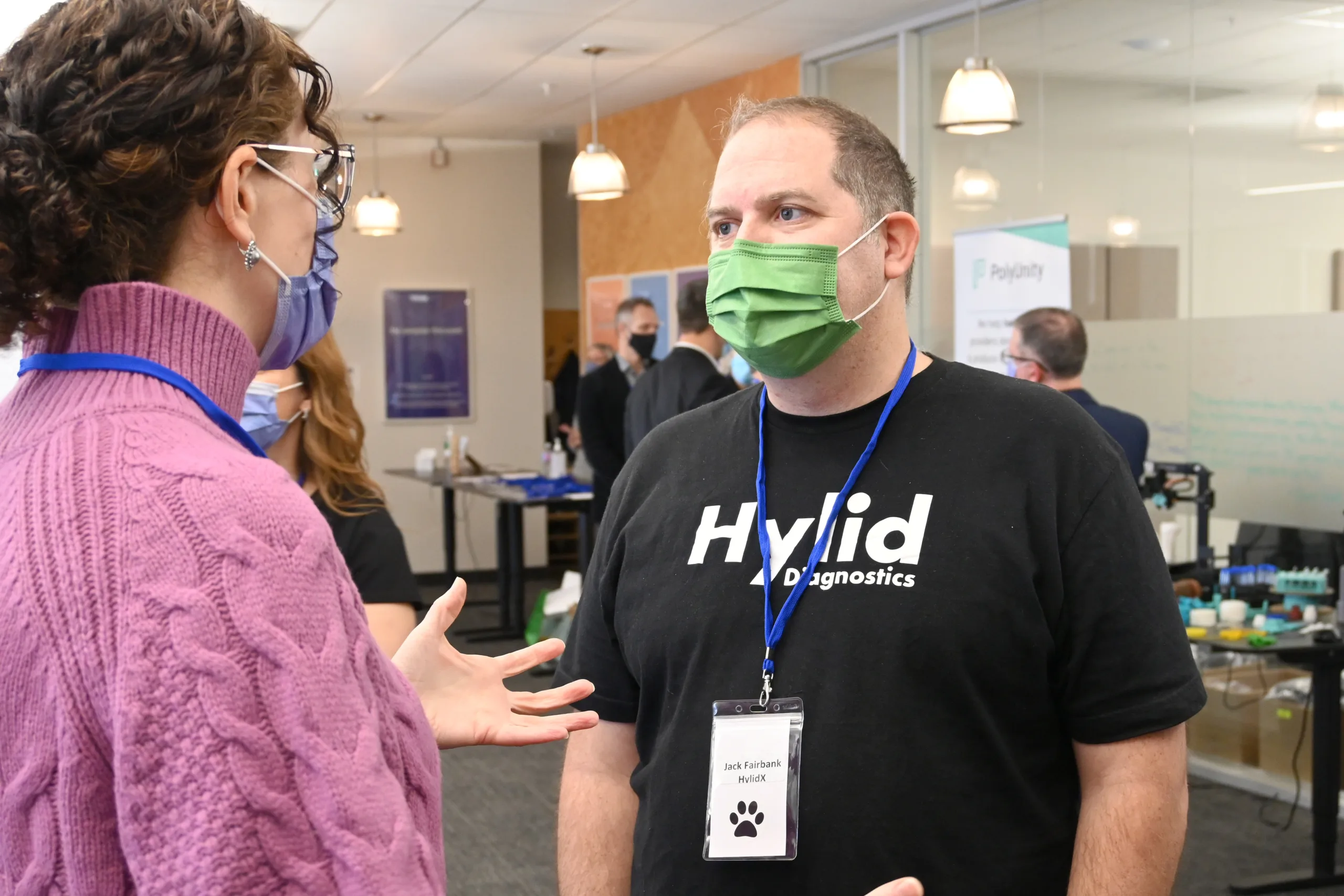
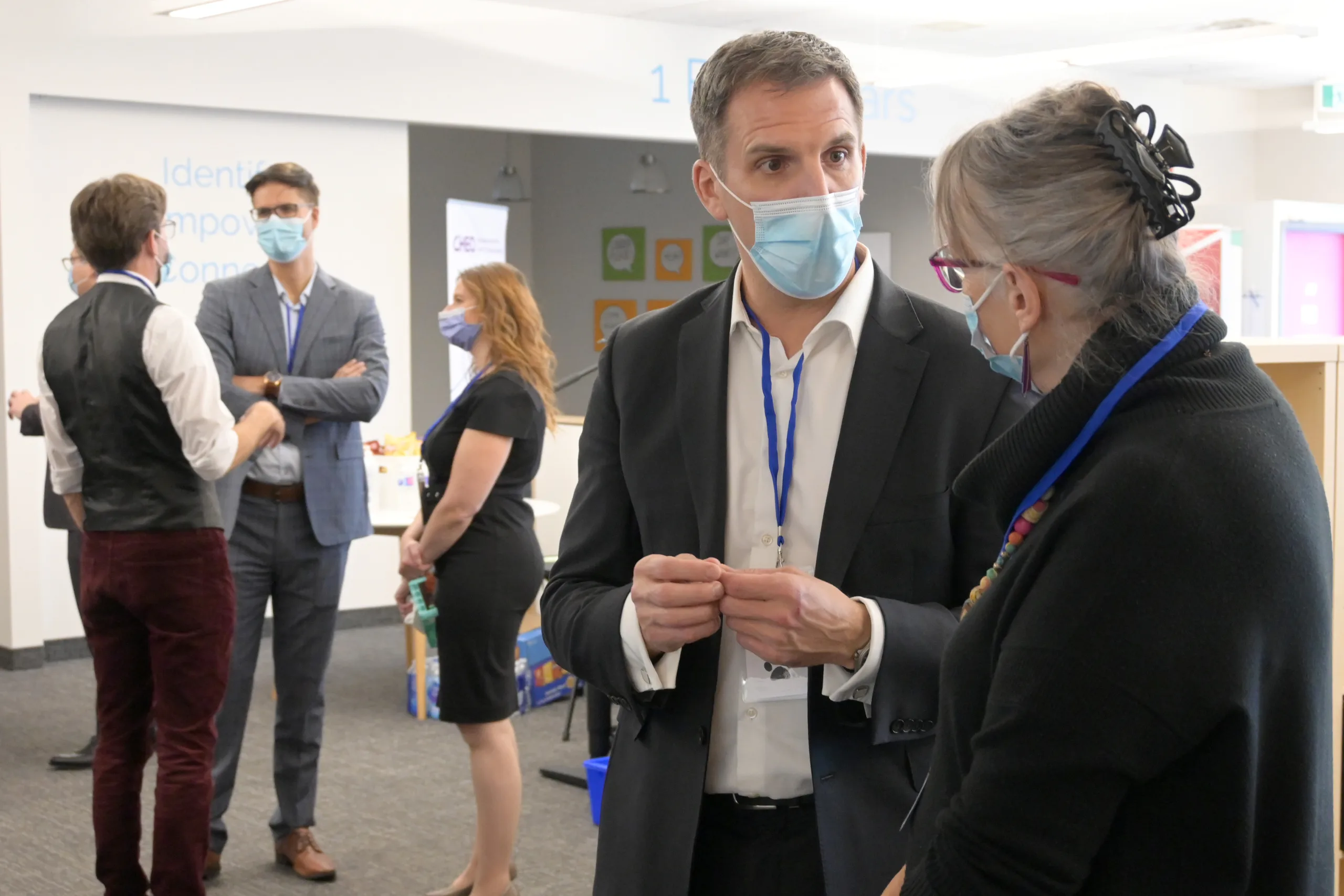
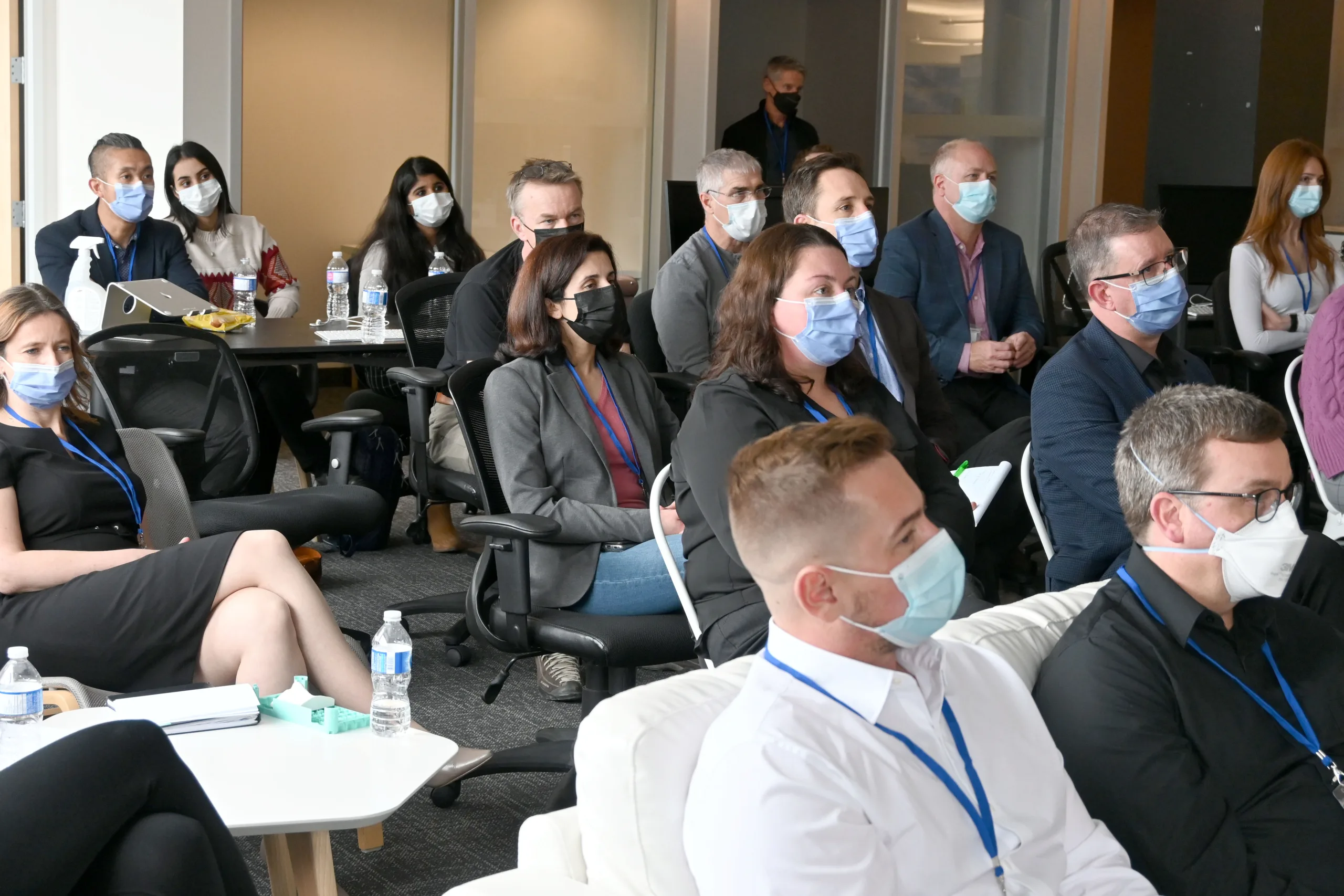




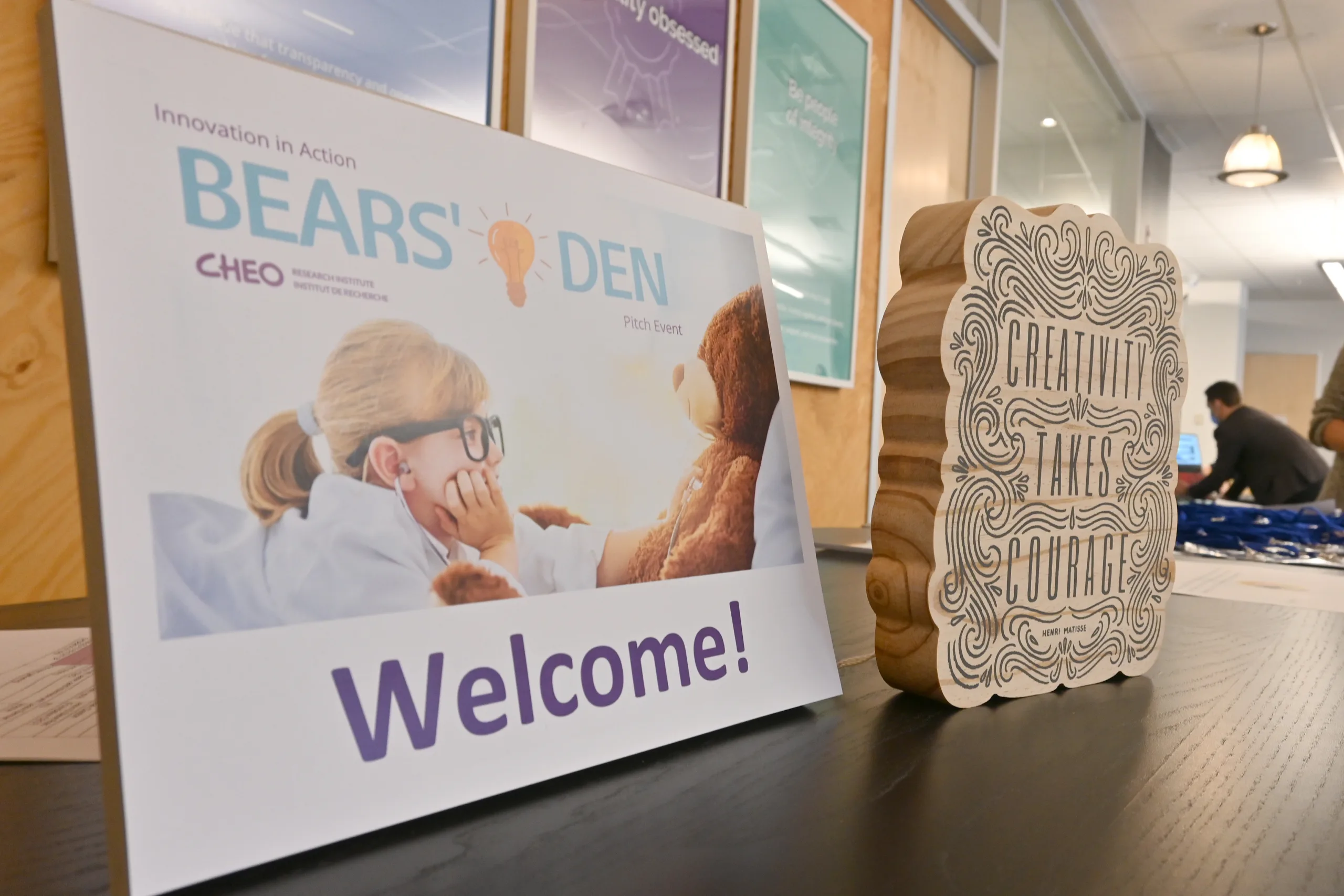
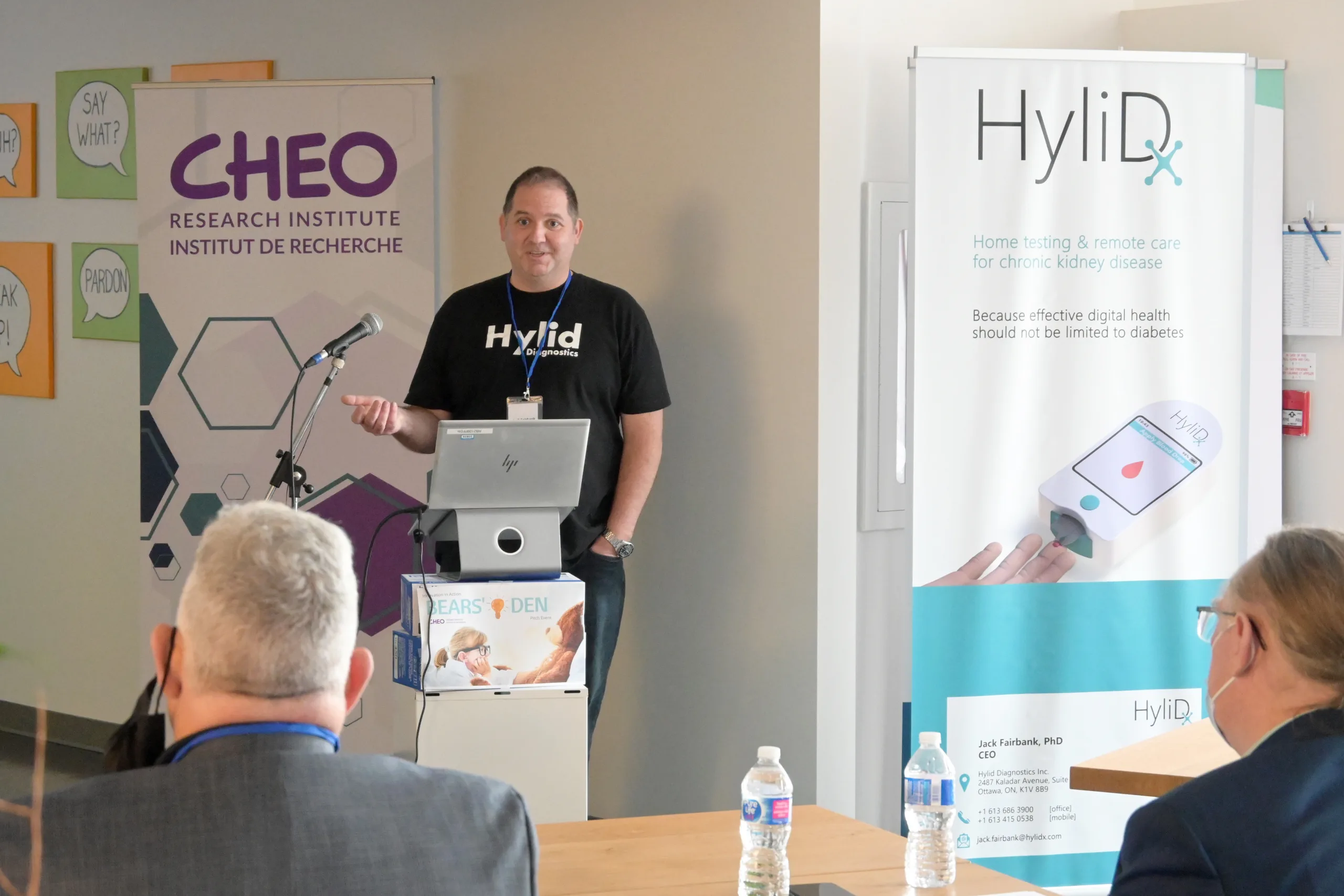
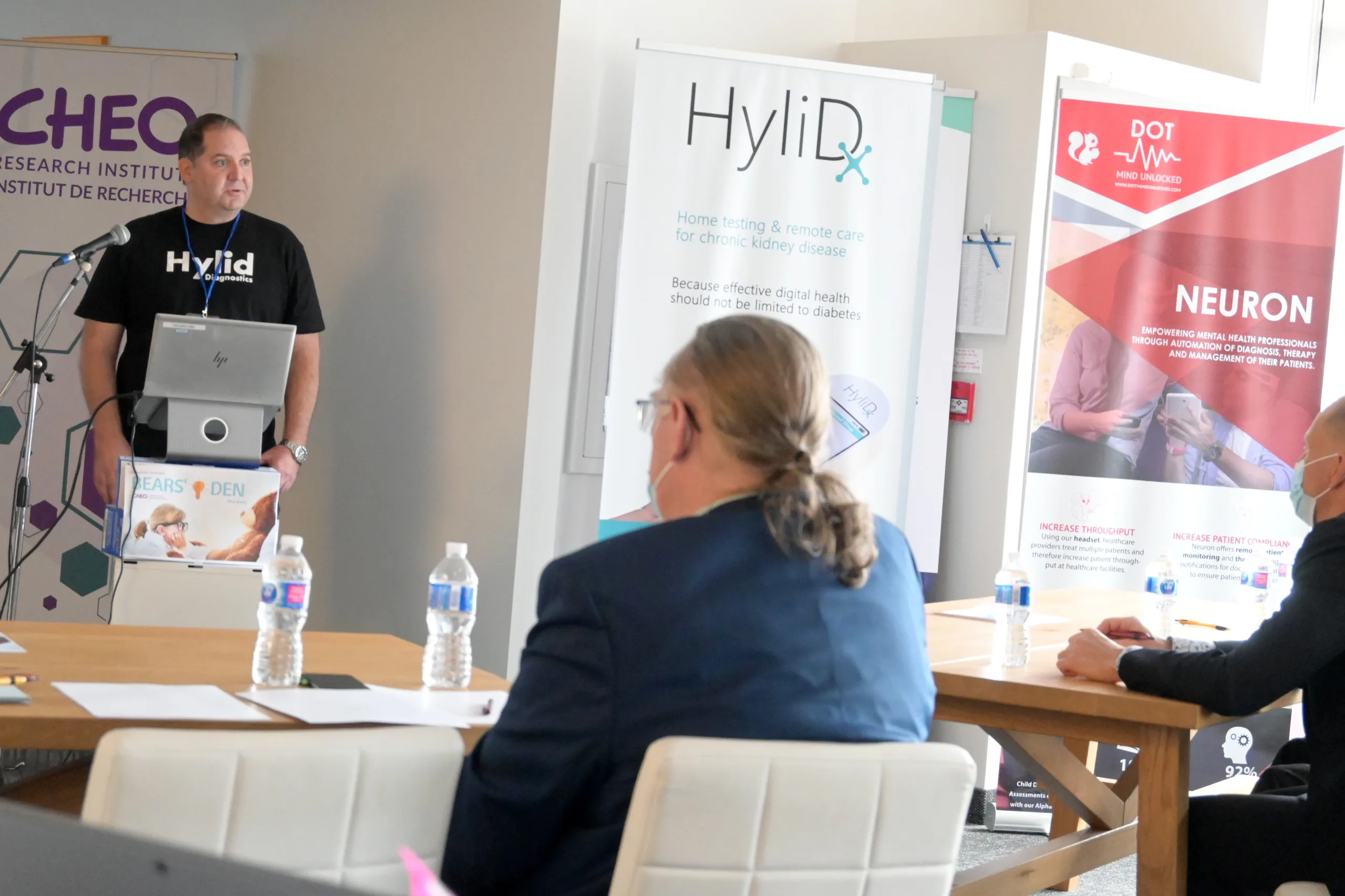


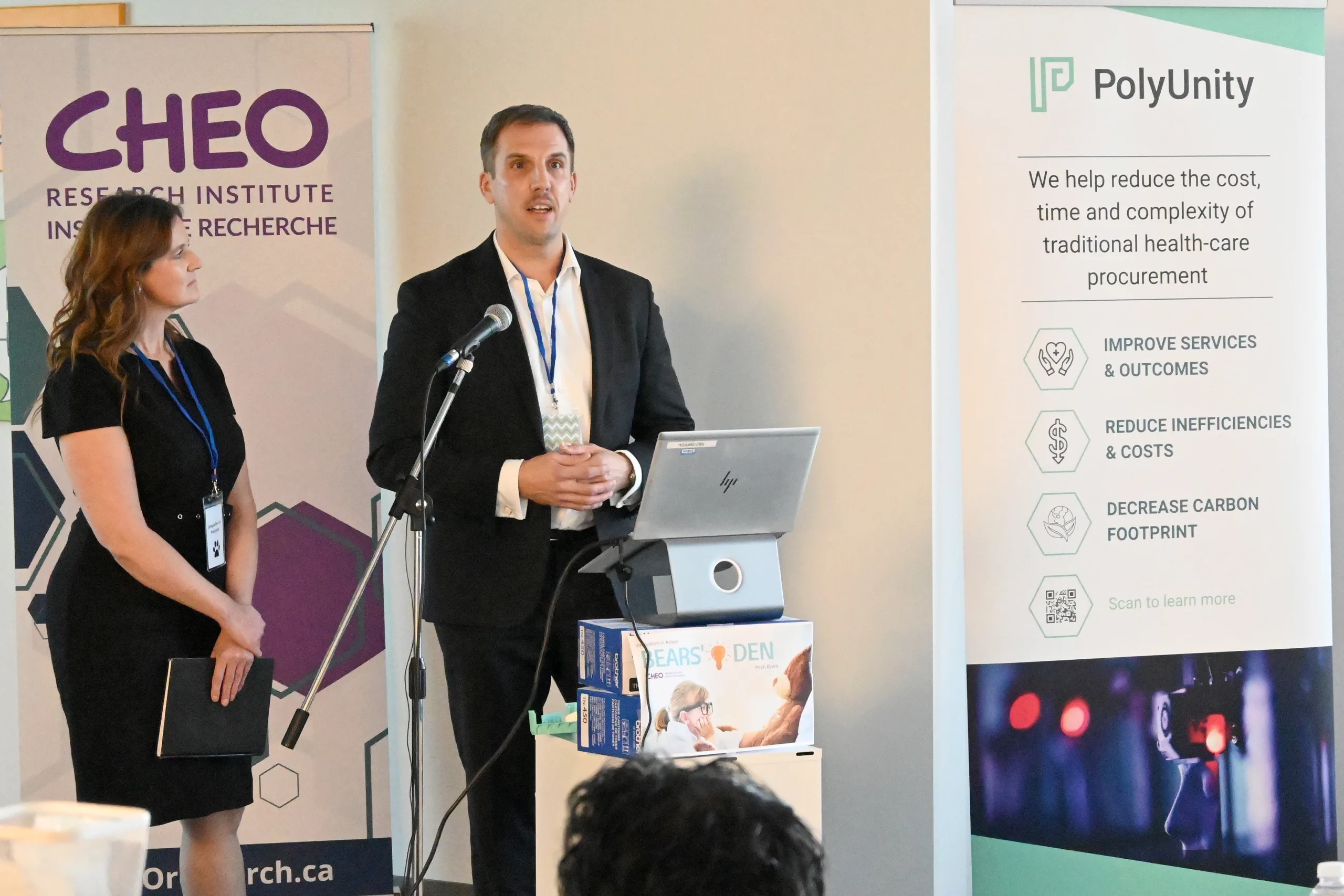

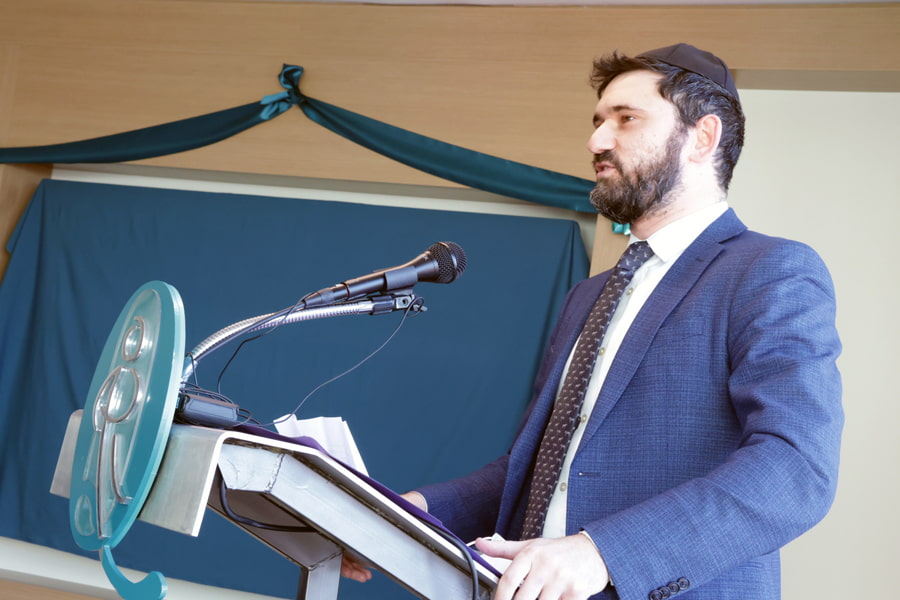

Op-ed: With healthcare in crisis, let’s have the audacity to innovate a better way forward





